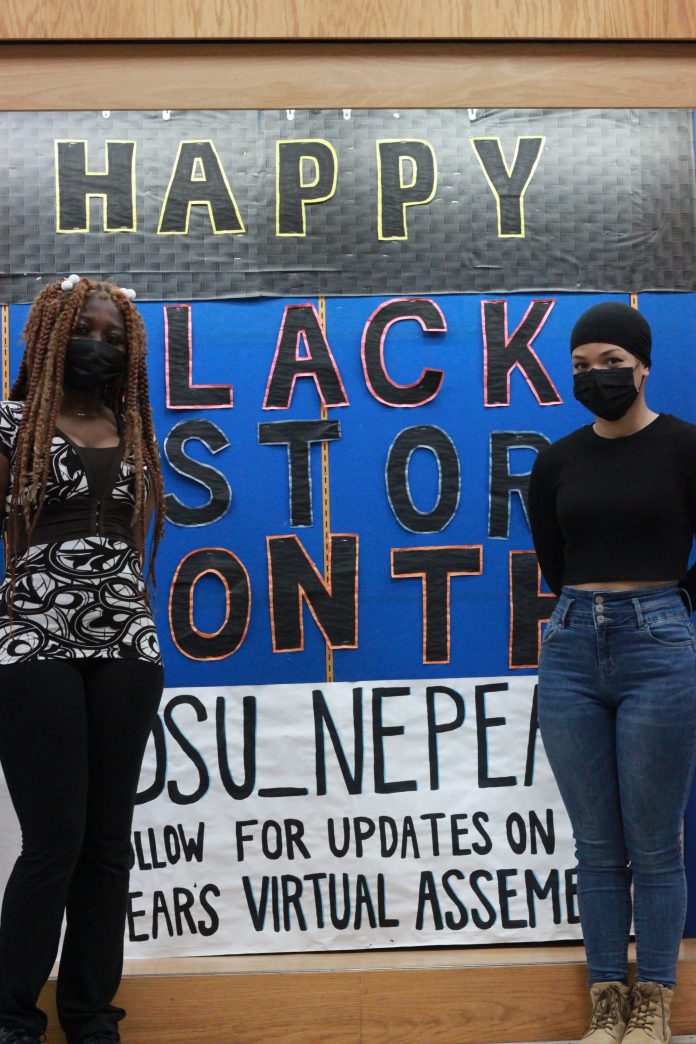By Hugh Kelly and Olivia Milley
This month, we were fortunate to interview Heaven-Lee Emond and Gloria Rwentambo, two executives of Nepean’s Diverse Student Union (DSU), who co-organized our school’s Black History Month events. In response to our questions, they emphasized students’ enthusiasm to celebrate the month, but also the need for more open conversations about racial issues in education.
Emond and Rwentambo have both been members of the DSU for multiple years, and were excited to be leading the club’s initiatives for Black History Month. Rwentambo says she enjoys being a representative for Black students in the school, and looks forward to bringing a more positive lens to Black history. This year, she says they tried to highlight the contributions and successes of Black Canadians in particular, in both educational and entertaining ways for students.
Black History Month is one of Nepean’s most important celebrations, and, despite the COVID-19 pandemic, there was still a lot happening this year. They both recognize the importance of using social media to spread awareness, so the DSU posted daily about Black activists, trailblazers, authors, and others, for followers to learn about examples of Black excellence. Furthermore, different subgroups within the DSU were assigned to multiple projects, such as creating a display case in the main hall, presenting daily announcements about Black History Month and organizing the virtual assembly, which took place at the end of February.
We also asked them if they think Nepean is doing enough to help racialized students at our school. “We’re doing the bare minimum… We don’t really communicate as well as we think we do. Students and teachers need to get more comfortable discussing issues like racism in classrooms,” Rwentambo said.
Emond added that although teachers are listening to students, there is no concrete action being taken to address their concerns. Moreover, they say there is still a lack of representation in lessons, and they would like to see more content about Black people reflected in their learning. Emond remarks this is the first year she is seeing teachers take steps to consciously adjust their practices.
They recommend that non-Black students should still celebrate the month, and the best way is to be open to learning and becoming aware of the issues.
“Educate yourself on Black History Month by reading books, investigating historical events, and getting familiar with Black culture,” said Rwentambo.
The pair also suggests that individuals seek out open and inclusive environments, such as the DSU, to ask questions and further their understanding, in addition to participating in local events. Emond added that, “you’re not going to get anywhere if you don’t at least try to listen and put yourself out there, especially in an area that might make you uncomfortable.”
While we were wrapping up, Emond and Rwentambo reiterated the importance of creating safe spaces in schools for all students, particularly racialized minorities. Teachers need to continue adapting their lessons and methods to better navigate these issues, to make our education truly representative of Canada’s diverse population.
